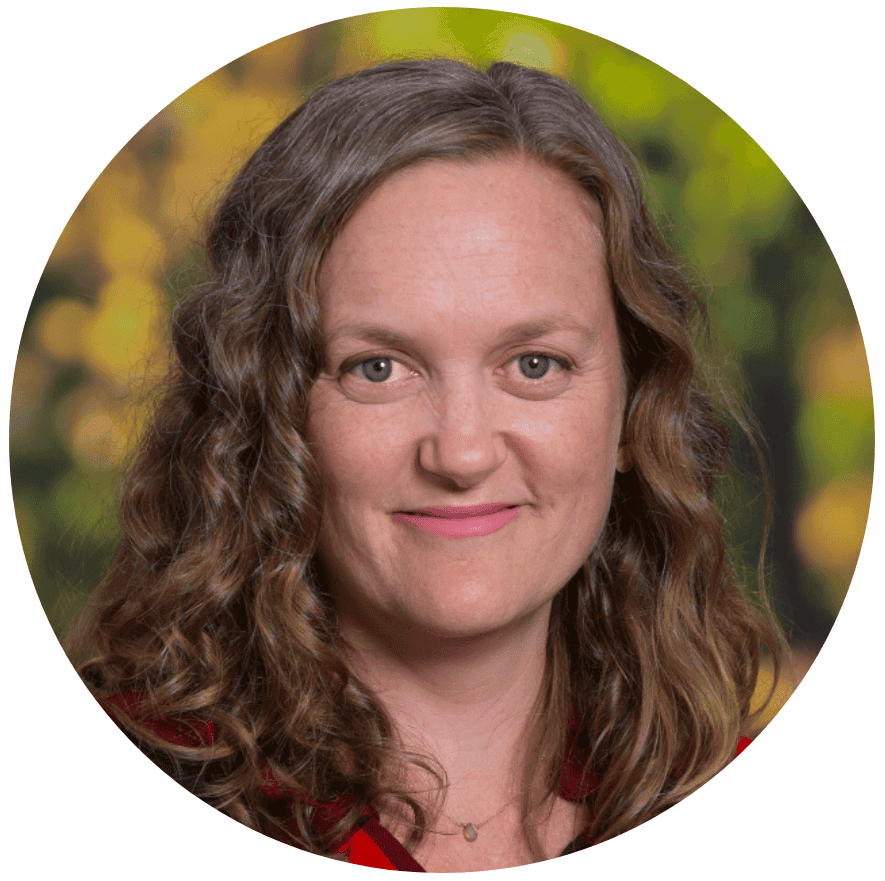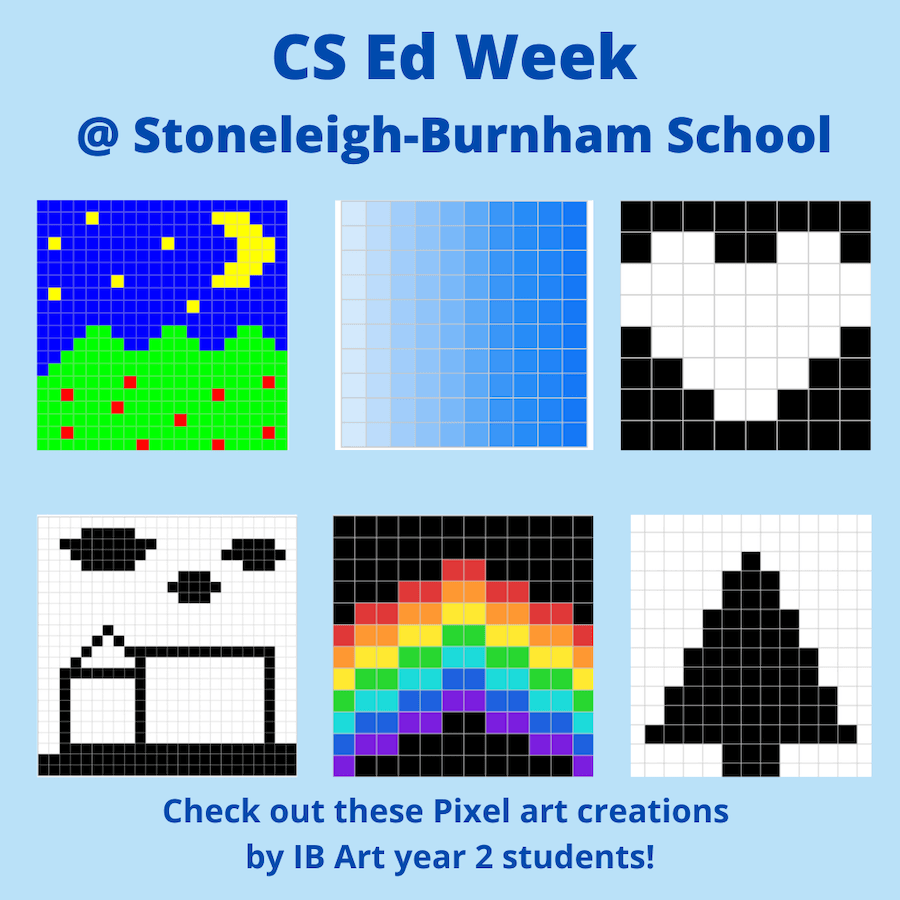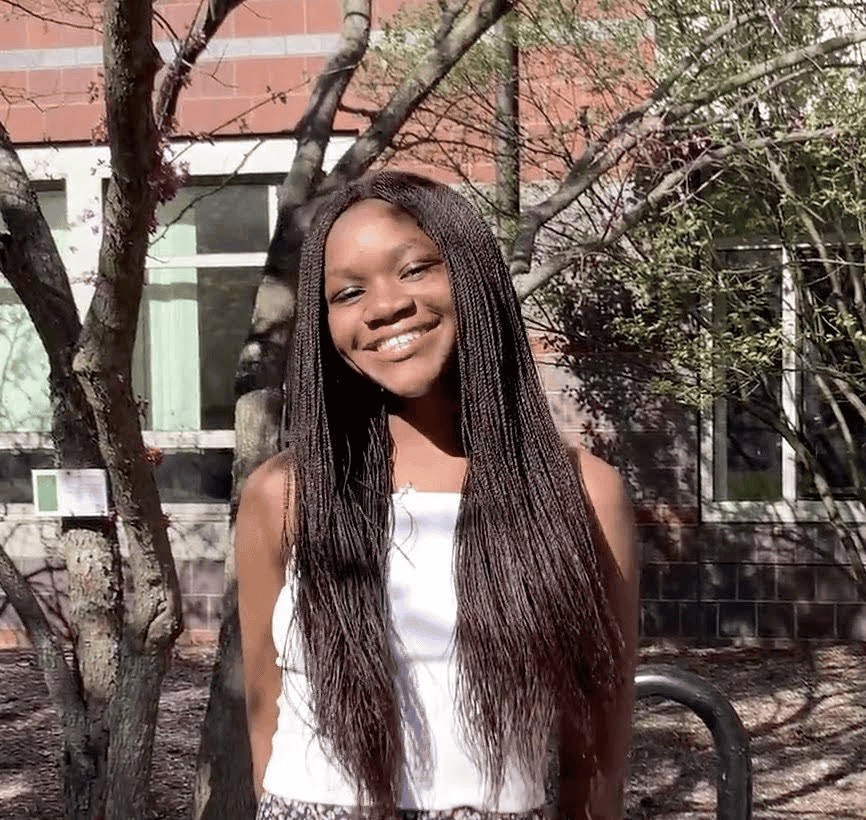JavaScript, Justice, and Culturally-Responsive Teaching
JavaScript, Justice, and Culturally-Responsive Teaching
Andrea Carnes, STEAM Coordinator and Math/Science Teacher at Stoneleigh-Burnham School in Greenfield, Massachusetts
The core theme of Andrea Carnes’ classes is no surprise. Her priority has always been making an impact.
“I started teaching as a Peace Corps Volunteer in Jamaica, after graduating from college in 2003 (BA in Cultural Anthropology, Minor in Biology). I taught environmental science and computers to elementary aged students. After returning to the U.S. and working for a literacy non-profit, I decided to utilize my Peace Corps benefits and get reduced graduate school tuition at George Washington University, where I joined the Teachers 2000 program. This allowed me to gain classroom experience in Montgomery County, Maryland.”

Andrea went on to earn her graduate degree — a Master’s in Transition Special Education. The knowledge she gained in this area continuously impacts the decisions she makes in her classes.
“Transition Special Education just means that I always craft my lessons and units when thinking about how the content will serve my students, post-graduation. We are always thinking about that transition to life after high school.”
After working in Maryland’s public schools for three years, Andrea moved to the Northeast and joined Stoneleigh-Burnham, a private all-girls boarding school. She began her time there as an Academic Learning Specialist, and in two years, transitioned to teaching middle school math and science full-time. In her second year, she started participating in the Hour of Code.

“At this point, I became the STEAM Coordinator at my school and started attending all sorts of professional development for coding and engineering. That’s when I decided to purchase Sphero Robots and Lego Mindstorm EV3 robots for my classes. I began integrating coding into my science classes and dedicated 25% of the weekly learning time to it.”
When she saw how excited the students were, Andrea knew she was onto something. Her next step was to become as well-versed as possible in their new topic of interest. She also wanted to give students a voice in selecting a curriculum that appealed to them, allowed them to be creative, and gave them the chance to express themselves.
“In the summer of 2018 I did an 8-week program with Mobile CSP to learn how to code in MIT App Inventor and teach AP CSP. We followed this curriculum for two years. Just this year, I had students ask me to teach a different course, so they could keep learning something new. We all decided on JavaScript.”
Andrea’s unique approach allowed her to create two cross-curricular courses with CodeHS — “JavaScript and Justice” and “Science, Space, and Coding”.
“JavaScript and Justice was my idea for allowing students to learn to code, while also supplementing their weekly work with articles, video clips and book excerpts that look closely at algorithmic bias. They also examine the extra barriers that women and women of color have to overcome to break into the tech industry. We want our students to be prepared if they do experience these hurdles in college or the workforce, once no longer in a supportive all-girls environment. I wanted them to do case studies of bias, then reflect on their own biases and intersectionality. Doing so allows them to be aware of them and actively work on reducing them.”
Self-discovery is also an important topic Andrea explores in her class.
“Every professional development I attend talks about how coding should be used in order to help students develop who they are. Young people need help finding themselves, what they like, and what they believe in. Any time we can use coding for social good to problem solve, students really latch on to that idea and will spend more time and effort trying something new and challenging. If they don’t have a personal connection to it, they won’t want to take on the cognitive load and persevere.”
This year, Andrea earned an Educator Award Honorable Mention from NCWIT’s Aspirations in Computing Program. Andrea’s students have also grown personally and tactically in her class. Olamiposi Ajao, known as Olly, has been able to apply her learning to everyday life.

“I think that intersectionality is such an important part of life. Everyone is different and when we are able to recognize that, it becomes much more fun to discuss topics, because something new is brought to the table each time. Being able to connect coding to social justice has opened my eyes up to things I did not even know could happen with technology, like algorithmic bias. Knowing of similar topics and making sure I am aware of them, not only makes me a better computer scientist, but a better person,” said Olly, a senior at Stoneleigh-Burnham.
Olly has won awards in computer science, including Booking.com’s Women in Tech Code-a-thon. She has been recognized by NCWIT for three consecutive years, receiving both Honorable Mention and MA Winner Awards for their Aspirations in Computing Program.
Andrea plans to continue to recruit students to take her blended courses each year.
“Students are also always looking for ways to discuss and process what is happening in the news. Any time we can integrate that into our lessons, they feel seen and heard. It’s also important to make sure students are introduced to role models that look like them. The use of materials, photographs and ideas that are intersectional is essential.”
The response has been positive. Andrea plans to develop the program on-campus, ensuring it has a lasting presence, far into the future.
“I am always thinking about ways for students to be creative and think deeply on important current issues that affect their world and their future. I also think it’s important to have FUN, and allow younger students the chance to really discover who they are and that they are good at coding. There are a lot of barriers of accessibility to break down, with students of all ages.”
Download the full Stoneleigh-Burnham story here.